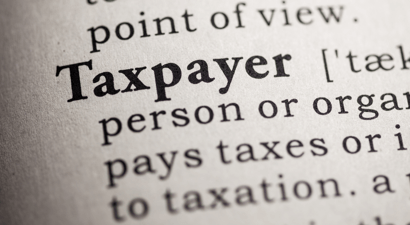Additional Tax Amendments: Individuals, Employment and Savings
Retirement reforms
Allowable deduction for fringe benefit of employer contributions to defined pension funds: Section 11(k)(iii) of the Income Tax Act inadvertently limited the allowable deduction for the fringe benefit of employer contributions to retirement funds to the actual value of the employer contribution. However, the fringe benefit value for defined benefit pension funds is determined by a formula provided in paragraph 12D of the act’s Seventh Schedule and may be larger than the actual value of the employer contribution (because the fringe benefit is dependent on the value of benefits and not the funding position of the defined benefit pension fund). In this case, the available deduction would not be aligned with the employer contribution’s fringe benefit value and any excess amount would become taxable. This was not the original intention and the legislation will be adjusted to allow a deduction up to the full value of the employer contribution fringe benefit, if valued according to paragraph 12D of the Seventh Schedule. The amendment will take effect from 1 March 2016.
Passive income deduction: Before 1 March 2016, taxpayers were able to deduct retirement annuity contributions against their passive or non-trading income up to a certain limit. The current wording of section 11(k) of the Income Tax Act, which introduces the harmonised tax regime for retirement contributions from 1 March 2016, does not allow for contributions to any retirement fund to be set off against passive income. It is proposed that section 11(k) of the act be amended to allow for retirement contributions to be deducted against passive income, subject to the available limits.
Rollover of excess contributions prior to 1 March 2016: It is proposed that section 11(k) of the Income Tax Act be amended to allow for the rollover of excess contributions to retirement annuity funds and pension funds accumulated up to 29 February 2016.
Order of allowable deductions: To correct the ordering rule for calculating allowable deductions in the determination of taxable income, it is proposed that the allowable deduction under section 11(k) of the Income Tax Act be determined before the allowable deduction under section 18A.
Removal of the requirement for a tax directive to effect tax-free transfers from pension funds to provident funds: The 2015 retirement reforms made provision for tax-free transfers from pension funds to provident funds. Before this amendment, tax-free transfers from pension funds to provident funds required a tax directive from SARS. It is proposed that this requirement for a tax directive be removed because it is no longer applicable to these transfers.
Valuation of contributions made to defined benefit pension funds: Paragraph 12D of the Seventh Schedule of the Income Tax Act only makes provision for contributions actually made by the employer or employee to certain retirement funds, and excludes contributions made on behalf of the employer or employee (for example, by the retirement fund). It is proposed that paragraph 12D of the Seventh Schedule be amended to include all contributions made for the member’s benefit. Other technical amendments to paragraph 12D include clarifying that retirement fund income is the full amount used to determine the employer’s contribution, not only remuneration as defined in paragraph 1 of the Fourth Schedule. A potential issue of double counting for retirement funds with a hybrid structure (having both defined benefit and defined contribution elements) will be removed. It will also be made clear when actuaries can provide an updated contribution certificate.
Vested rights for provident fund members – divorce order settlements: From 1 March 2016, provident fund members may be required to purchase an annuity using a portion of contributions made after that date. However, all contributions made before 1 March 2016 will not be subject to annuitisation (generally referred to as vested rights). To allocate this vested right fairly in the case of a divorce, it is ANNEXURE C: ADDITIONAL TAX POLICY AND ADMINISTRATIVE ADJUSTMENTS 159 proposed that the withdrawal of retirement benefits arising from divorce order settlements be proportionally attributed as a reduction against both the vested right and non-vested right portions of the retirement fund savings.
Vested rights for provident fund members – mandatory transfer: From 1 March 2016, provident fund members above the age of 55 will be able to continue contributing to that provident fund without being required to purchase an annuity upon retirement. However, if they transfer to another retirement fund, then any future contributions to that fund would not be exempt from annuitisation. It is proposed that forced transfers (through the closure of a retirement fund) will not affect the member’s ability to make further contributions, which can be taken as a lump sum. Further technical corrections are required to ensure that all contributions to provident funds or pension funds with lump sum benefits made before 1 March 2016 are included in the vested rights provisions, in line with the policy intent. Specifically, the vested rights provision inadvertently excluded transfers made to retirement funds, as defined under paragraph (c) of the definition of pension funds in section 1 of the Income Tax Act, and to preservation provident funds.
Foreign pension contributions, annuities and payouts: When the residence-based taxation system was introduced in 2001, section 10(1)(gC) was added to the Income Tax Act to exempt foreign pensions derived from past employment in a foreign jurisdiction (i.e. from a source outside of South Africa). The question of how contributions to foreign pension funds and the taxation of payments from foreign funds should be dealt with raises a number of issues, which require a review. Sufficient time would be required to determine how to deal with contributions to foreign funds and the taxation of payments from foreign funds, taking into account the tax policy for South African retirement funds.
Fringe benefit
Clarification regarding raising an assessment for re-calculating fringe benefit: Paragraph 3(2) of the Seventh Schedule of the Income Tax Act allows the SARS Commissioner under certain circumstances to re-determine the cash equivalent of a fringe benefit and assess either the employer or the employee. Uncertainty exists regarding under what circumstances this determination will be made. To provide clarity, it is proposed that the wording of paragraph 3(2) of the act’s Seventh Schedule be aligned with the wording in paragraph 5(2) of the Fourth Schedule.
Alignment of the definition of private travel: The concept of private travel has been difficult for employers to apply in practice. The difference in the wording of the definition of private travel in section 8 and the Seventh Schedule of the Income Tax Act adds to the difficulties. To correct this, it is proposed that the wording of the two provisions be aligned.
Tax-free investments
Alignment of estate duty treatment: Tax-free investments were introduced from 1 March 2015 to encourage individuals to save and were not intended to serve as a vehicle to avoid estate duty. Government has become aware that the current law allows individuals who protect their investment portfolio through a long-term insurer to nominate a beneficiary on the endowment policy. As a result, the transfer of the proceeds from the tax-free investment asset to the named beneficiary would circumvent estate duty. It is proposed that the legislation be amended to prevent this.
Dividends tax returns in the context of tax-free investments: Investors receiving dividends from tax-free investments are required to submit an exempt dividends tax return to SARS following the receipt of every dividend payment. It is proposed that an amendment be made to remove this requirement.
Transfers between service providers: The implementation date to allow transfers of tax-free investments between service providers will be postponed from 1 March 2016 to 1 November 2016 to allow further time for service providers to finalise the administrative processes required for these transfers. Draft regulations outlining the transfer process will be published shortly.
Employee share-based incentive schemes
Removal of possible double taxation: If a taxpayer receives a restricted equity instrument having a value, section 1 of the Income Tax Act requires that it be included in gross income in year one, despite the restrictions. Upon vesting, the gain on the instrument needs to be included in gross income in the year of vesting, according to paragraph (n) of the definition of gross income in section 1 when read with section 8C. This could result in the same amount being taxed twice. To avoid this, it is proposed that the acquisition of shares subject to the provisions of section 8C of the act be specifically excluded from paragraph (c) of the definition of gross income in section 1.
Addressing circumvention of section 8C rules: The main purpose of section 8C is to prevent taxpayers from disguising high salaries through the use of restricted shares or share-based incentive schemes, which would trigger lower or no taxable income or capital gains. Specific anti-avoidance rules have been added to the tax legislation to counteract avoidance schemes where benefits derived from restricted shares or share-based incentive schemes consist of dividends. The rules exclude such dividends from the exemption in section 10(1)(k) and tax them as ordinary income. However, the current rules do not deal adequately with some schemes where restricted shares held by employees are liquidated in return for an amount qualifying as a dividend. It is proposed that the current rules be reviewed to deal with this.
Inclusion of certain dividends in the definition of remuneration: Certain dividends received from restricted equity instruments do not qualify for an income tax exemption and are taxable on assessment of the directors and employees. It is proposed that these taxable dividends be specifically included in the definition of remuneration for PAYE in paragraph 1 of the Fourth Schedule to the Income Tax Act.
Employees of foreign employers in South Africa designated as provisional taxpayers
If foreign employers in South Africa do not deduct PAYE, local employees should pay provisional tax in terms of the Fourth Schedule of the Income Tax Act. Rather than alert this class of taxpayers of their status through individual notices, as is currently required, it is proposed that the commissioner notify them of their status through a public notice.
Directives to be sought for all employment lump sums
There are exceptions to the rule that employers must ascertain from the commissioner the correct amount in employees’ tax to be withheld from lump-sum payments before payment is made. It is proposed that the provision for exceptions be removed.
Removal of exclusion from penalty calculation
The penalty for underpaying provisional tax is based on a percentage of normal tax payable after taking into account rebates and tax already paid. Certain once-off amounts, such as retirement lump-sum and severance-benefit payments, are excluded from the calculation of the penalty because they are taxed separately in terms of special tables and the tax owed is withheld before payment is made. Taxpayers are required to pay provisional tax on the other amounts listed in paragraph (d) of the definition of gross income in section 1 of the Income Tax Act, because these amounts are not taxed under the lump-sum tax tables. However, because these amounts are excluded from the penalty calculation, taxpayers are not penalised if they fail to pay the required provisional tax. To correct this, it is proposed that the penalty calculation’s exclusion of the amounts in paragraph (d) not taxed in terms of the special tables be removed.
Date on which estimate for second provisional tax payment must be submitted
A provisional taxpayer is not subject to the underpayment penalty if an estimate for the second provisional tax period is submitted before the due date of the subsequent provisional tax payment. It is proposed that this window period be closed on the date of assessment of the relevant year.





